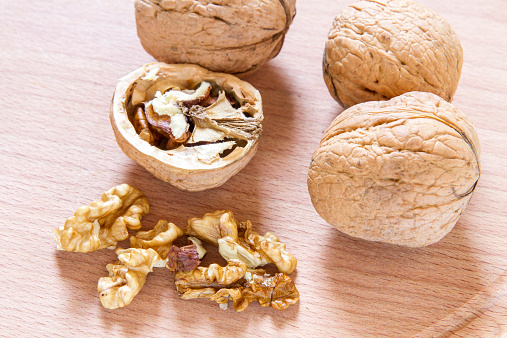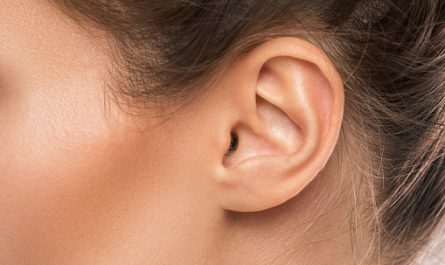Effect Of Eating Habits On Our Health
Eating habits can have a significant impact on an individual’s overall health. Here are a few ways in which eating habits can affect health.
Nutrient intake: The types and amounts of nutrients that we consume can either support or harm our health. For example, a diet that is high in fruits and vegetables can provide the body with important vitamins, minerals, and antioxidants, while a diet that is high in processed foods and added sugars can increase the risk of chronic diseases such as obesity, type 2 diabetes, and heart disease.
Weight management: Eating habits can also play a role in weight management. Consuming a bigger number of calories than the body needs can prompt weight gain while consuming more fewer calories than the body needs can prompt weight reduction. Consuming a balanced diet and engaging in regular physical activity can help to maintain a healthy weight.
Chronic disease prevention: Eating a healthy diet can help to reduce the risk of developing chronic diseases such as obesity, type 2 diabetes, and heart disease. This includes eating a variety of nutrient-dense foods, limiting added sugars and unhealthy fats, and choosing whole grains instead of refined grains.
Mental health: Eating habits can also affect mental health. For example, research suggests that a diet that is high in fruits, vegetables, and whole grains may support mental well-being, while a diet that is high in processed foods and added sugars may increase the risk of developing mental health conditions such as depression and anxiety.
In conclusion, eating habits can have a significant impact on an individual’s overall health. It is important to choose a variety of nutrient-dense foods, limit added sugars and unhealthy fats, and engage in regular physical activity to support overall health and well-being.
Unhealthy food is a term used to portray food that is high in calories and low in supplements. It is often high in added sugars, unhealthy fats, and refined grains, and may lack important nutrients such as vitamins, minerals, and fiber.
Effect of junk food on health: There are several ways in which junk food can affect health: Weight gain: Junk food is high in calories and can contribute to weight gain when consumed in excess. This can increase the risk of obesity and related health problems such as type 2 diabetes and heart disease.
Nutrient deficiencies: Junk food is often lacking in important nutrients such as vitamins, minerals, and fiber. Consuming a diet that is high in junk food can lead to deficiencies in these nutrients, which can have negative effects on overall health.
Chronic disease risk: Consuming a diet that is high in junk food has been linked to an increased risk of chronic diseases such as obesity, type 2 diabetes, and heart disease. This is due in part to the high levels of unhealthy fats, added sugars, and refined grains found in junk food.
Poor mental health: Some research suggests that a diet high in junk food may be associated with an increased risk of mental health problems such as depression and anxiety.
It is important to limit the consumption of junk food and choose a variety of nutrient-dense foods to support overall health and well-being.
Effect of junk food on Stothe mach: Eating junk food can have a nseveralgative effects on the stomach. Here are a few ways in which junk food can affect the stomach:
Indigestion: Junk food is often high in fat and can be difficult for the body to digest. This can lead to indigestion, which can cause symptoms such as bloating, gas, and stomach discomfort.
Constipation: Junk food is often low in fiber, which is important for maintaining regular bowel movements. Consuming a diet that is low in fiber can lead to constipation, which can cause abdominal pain and discomfort.
Acid reflux: Junk food is often high in fat and can relax the lower esophageal sphincter, which can allow stomach acid to flow back into the esophagus and cause acid reflux.
Stomach ulcers: Some research suggests that a diet high in processed and fried foods may increase the risk of stomach ulcers. Stomach ulcers are sores that form on the lining of the stomach and can cause abdominal pain and discomfort.
It is important to limit the consumption of junk food and choose a variety of nutrient-dense foods to support overall health and well-being.
Effect Eating habits food on the Brain: Eating habits can have a significant effect on the brain. Here are a few ways in which eating habits can affect the brain: Cognitive function: A healthy diet that is rich in nutrients such as omega-3 fatty acids, B vitamins, and antioxidants may support cognitive function and brain health. For example, research suggests that a Mediterranean-style diet, which is high in fruits, vegetables, whole grains, and healthy fats, may support cognitive function and reduce the risk of cognitive decline.
Mood: Eating habits can also affect mood. Some research suggests that a diet that is high in processed foods and added sugars may be associated with an increased risk of mood disorders such as depression and anxiety. On the other hand, a diet that is rich in fruits, vegetables, and whole grains may support mental well-being.
Rest: Dietary patterns can likewise influence rest quality. For example, consuming a diet that is high in caffeine or high in sugar may interfere with sleep. On the other hand, a diet that is rich in tryptophan-containing foods such as poultry, nuts, and seeds may support sleep.
Energy levels: Eating habits can also affect energy levels. Consuming a diet that is high in nutrient-dense foods such as fruits, vegetables, and whole grains can provide sustained energy, while a diet that is high in processed foods and added sugars may lead to fluctuations in energy levels.
In conclusion, eating habits can have a significant effect on the brain. It is important to choose a variety of nutrient-dense foods and limit the intake of processed foods and added sugars to support good health.



